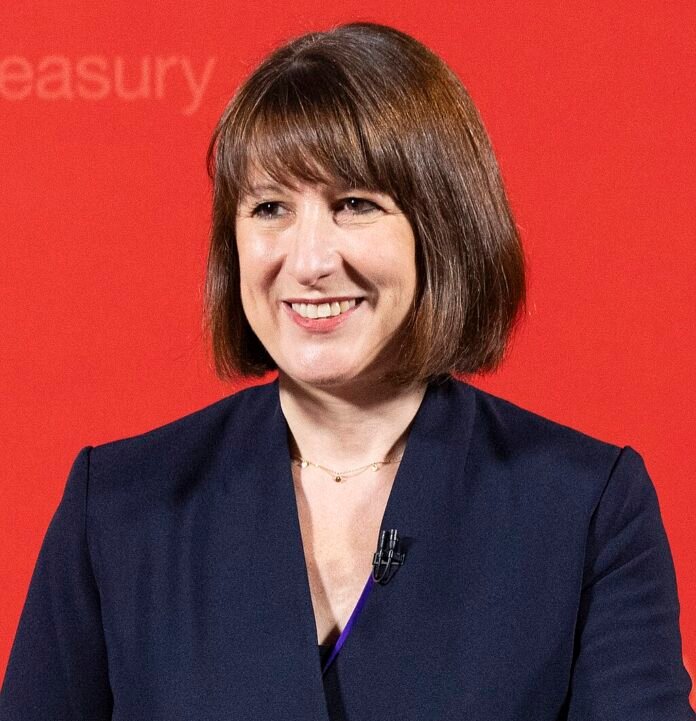Nine Labour MPs call on Rachel Reeves to demand the immediate release of Hong Kong’s Jimmy Lai during her first official trip to China in nearly a decade
As UK Chancellor Rachel Reeves embarks on her historic trip to China, the pressure is mounting for her to raise the case of Jimmy Lai, a prominent pro-democracy activist jailed in Hong Kong. Lai, a British citizen, has been incarcerated since December 2020, accused of conspiracy to commit foreign collusion in what many regard as Hong Kong’s most high-profile national security trial.
A group of nine Labour MPs have joined forces with the Inter-Parliamentary Alliance on China (Ipac), urging Reeves to demand Lai’s immediate and unconditional release during her two-day visit to Beijing. The MPs also called on Reeves to address the broader issue of political prisoners in Hong Kong, which has become a focal point of tension between the UK and China.
A government source confirmed that the chancellor intends to raise concerns about Lai’s detention. Reeves is expected to also speak out against Hong Kong’s police actions, including issuing warrants for pro-democracy activists living in the UK, and to challenge China’s ongoing support for Russia’s invasion of Ukraine. These issues are likely to dominate the discussions during the two-day visit, which is Reeves’ first official trip to China since assuming her role, and the first by any UK chancellor in nearly a decade.
In Beijing, Reeves visited the flagship store of UK bicycle maker Brompton, where she emphasised the importance of the visit to strengthen economic ties. She reiterated that her October budget would not be altered despite ongoing global financial market instability, stating firmly that “economic stability is the bedrock for economic growth and prosperity.”
However, Reeves’ visit has been met with some resistance at home. The Conservative and Liberal Democrat parties had called for the trip to be cancelled after the British pound dropped to its lowest level in a year. Despite this, Reeves defended the visit, arguing that building stronger relations with China—now the world’s second-largest economy—was essential for the UK’s future prosperity.
Embed from Getty ImagesReeves further asserted that a pragmatic and good relationship with China was in the national interest, stressing the importance of balancing trade and investment while ensuring national security remains a priority. “It’s what our allies around the world do, and it’s what I will be pursuing as chancellor,” she said, as she outlined plans to assist British businesses in expanding abroad.
Reeves’ visit also highlights the growing focus on China’s green tech sector, with early-stage talks about investment in the UK from Chinese electric car manufacturers. Unlike the US and EU, the UK has not imposed tariffs on Chinese electric cars, which some see as an opportunity for collaboration in emerging industries.
Yet, the relationship between the UK and China remains a delicate balancing act, with critics questioning whether economic ties should come at the expense of human rights and security concerns. Some Labour members have backtracked on previous commitments, notably the pledge to label China’s treatment of Uyghur Muslims in Xinjiang as genocide—a stance that has drawn both support and criticism.
This visit comes at a time of increasing scrutiny over China’s role on the global stage. With Chinese fast-fashion giant Shein preparing to list on the London Stock Exchange, questions surrounding China’s human rights record are likely to remain at the forefront of discussions in the UK. Labour’s position on China has become increasingly complex as ministers navigate the delicate intersection of economic growth, national security, and human rights.
One of the key figures in this debate, Charles Parton, a former diplomat with deep ties to both China and Hong Kong, believes the UK government is overestimating the economic importance of its political relationship with Beijing. He pointed out that the UK has already seen record exports to China in recent years, despite a more adversarial approach by the Conservatives.
The stakes are high as Reeves’ China visit continues to unfold, with both economic and human rights issues hanging in the balance. As the chancellor meets with senior officials in Beijing, including vice-premier He Lifeng, the world will be watching closely to see how the UK navigates these complicated waters.
THE TELEGRAPH
Chancellor Rachel Reeves has defended her visit to China, arguing that “pragmatic and predictable” ties with Beijing are vital for boosting UK economic growth. During her two-day trip, Reeves emphasized the importance of re-establishing high-level economic talks, suspended since 2019, to facilitate British businesses’ access to China, the world’s second-largest economy. Despite criticism over her overseas travel amidst domestic financial instability, she reiterated that her fiscal rules are non-negotiable, and growth remains her top priority. She also met Chinese Vice President Han Zheng to discuss areas of mutual interest and disagreement.
SKY NEWS
As economic uncertainty looms in the UK, with rising gilt yields and a weakening pound, Rachel Reeves’s visit to China is garnering significant attention. While markets back home are jittery, Reeves is focusing on strengthening ties with China, aiming to boost UK exports, particularly in financial services. Unlike many developed nations that have imposed tariffs on China, the UK is making a strategic move to deepen economic relations, betting that closer trade ties with the world’s second-largest economy will pay off in the long run. The visit signals a bold economic gamble as Britain seeks to carve out a unique position in global trade.
